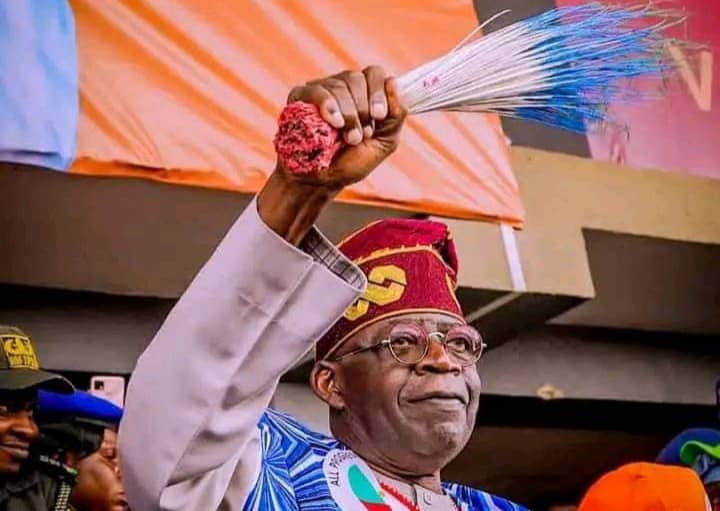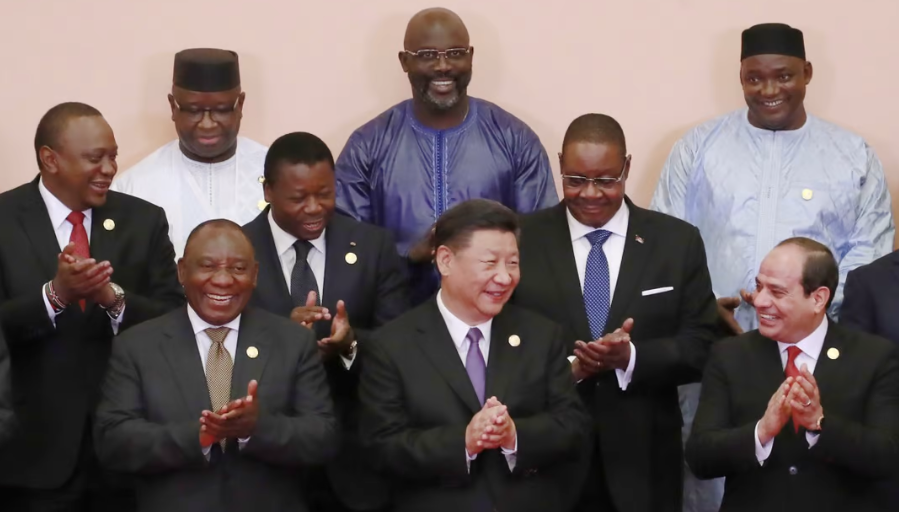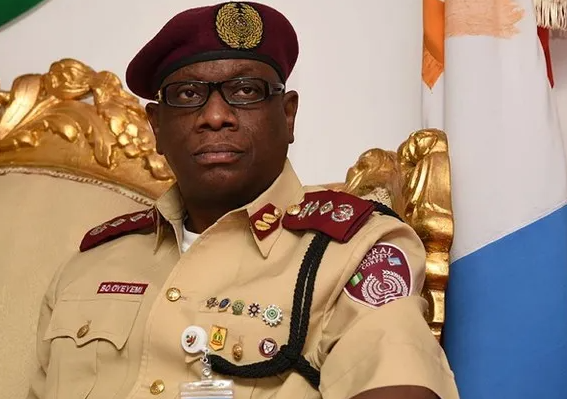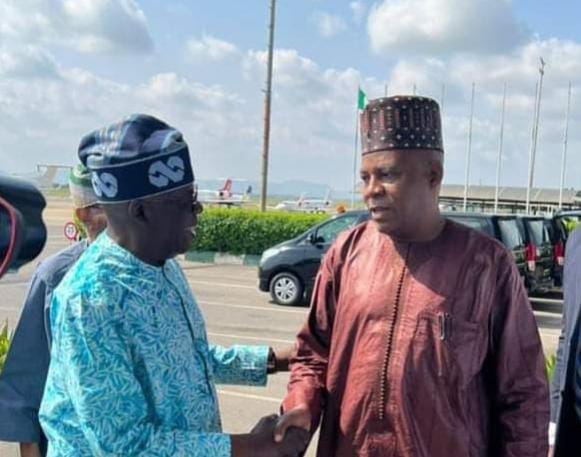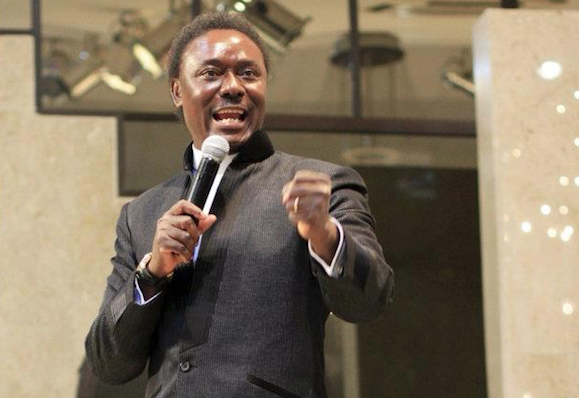BY REMI OGUNKAYO
Historically, the identity of running mates in presidential elections are not significant in terms of electoral outcomes. In this regard, Nigeria is not different from any other country. Of the list of vice-presidents: Atiku Abubakar, Goodluck Jonathan, Namadi Sambo and now Yemi Osinbajo, only the Waziri Adamawa brought significant political heft to the ticket.
However, this current cycle has changed that dynamic. The selection of Kashim Shettima, former Borno governor and current senator for Borno Central, as running mate to Bola Tinubu has generated a lot of debate about the propriety or otherwise, of a Muslim-Muslim ticket and the impacts on national unity and cohesion. Many references have been made to the Muslim-Muslim ticket of the late MKO Abiola and Babagana Kingibe in 1993, and the extent to which the political economy of Nigeria a generation ago is applicable to today.
In the PDP, a lot of the apparent turmoil in the party after a relatively rancour-free presidential primary has been due to the selection of Delta state governor, Ifeanyi Okowa, despite Governor Nyesom Wike being favoured by a significant number of top party apparatchiks. The impact of the choice has been so divisive that Governor Wike is being actively courted by the ruling APC, with the political rumour mill on overdrive concerning permutations for 2023.
Advertisement
On the Labour Party side, Peter Obi opted for former rep and senator, Yusuf Baba-Ahmed, from Kaduna state after weeks of speculation about a possible merger with the New Nigeria People’s Party (NNPP) led by former Kano governor Rabiu Musa Kwankwaso. The Obi campaign has been driven by a remarkable surge of energy from young voters, and the pick of Baba-Ahmed has done nothing to tamp down the enthusiasm.
For the first time since the 4th Republic began in 1999, we appear to be in an era of consequential vice presidential picks. It is worth examining why this is the case and how the different choices could shake out in the elections.
Cynical pragmatism
Advertisement
On one hand, the debate about a Muslim-Muslim ticket in the APC and its impact on national cohesion at the time of growing polarization is an important one, because of the reality of ethnic, regional and religious balance in a country that appears more polarized than ever. On the other hand, it is worth looking at the numbers which define the APC’s current coalition.
Keeping the Buhari coalition together is the major task of APC election strategists in this election. In the 2011 elections prior to the merger that birthed the APC, Buhari’s CPC delivered just under 12 million votes, winning in 11 of 19 Northern states. It is an eerily similar performance to the one in 2003 with the ANPP where he won 10 of 19 Northern states, winning 12.7 million votes in total.
In both successful Buhari campaigns in 2015 and 2019, the APC won handily in the North-West, with the North-East and North-Central being a more mixed bag. With Asiwaju Tinubu apparently securing the full buy-in of the APC’s North-West governors, his attention turned to the North-East to counter Atiku’s influence in the region. This explains the pick of Shettima.
In his re-election campaign in 2015, Shettima outperformed Buhari in his state. He got 649,913 votes compared to Buhari’s 473,543 votes. In winning the senate election for Borno Central in 2019, Shettima got 342,898 votes, a figure higher than Atiku’s numbers in the north-east, excluding Adamawa and Taraba.
Advertisement
As such, it appears that despite the debate over a Muslim-Muslim ticket, the APC’s aim is simply to secure as much of the Buhari coalition as possible to win victory at the polls. This is especially important as they are not as competitive in the south-east and south-south.
Little to choose
This brings us nicely to the PDP and the choice of Ifeanyi Okowa as running mate over Nyesom Wike. Both governors are in their second terms, so it is helpful to look at their electoral performance for the PDP in 2015 and 2019.
In the 2015 elections, Delta state delivered 48,910 votes for then-APC candidate Muhammadu Buhari, and 1,211,405 votes for then-President Goodluck Jonathan, creating a margin of 1,162,495 votes within a turnout of 55.4%. In Rivers State, it was 69,238 votes for Muhammadu Buhari, 1,487,075 for Goodluck Jonathan – a margin of 1,417,837 votes in a turnout of 61.3%.
Advertisement
In the 2019 elections, Delta State delivered 221,292 votes for President Muhammadu Buhari, and 594,068 votes for PDP candidate Alhaji Atiku Abubakar, a margin of -372,776 votes within a turnout of 28.7%. In Rivers state, it was 150,710 votes for President Muhammadu Buhari, 473,971 votes for Atiku Abubakar – a margin of -323,261 votes in a turnout of 19.4%.
The two elections show that even though Rivers delivered a higher margin of victory for Goodluck Jonathan in 2015, it was Delta state which did so for the People’s Democratic Party in 2019. This is partly due to the collapse in turnout in Rivers, from 61% to only 19%, a drop of two-thirds. Turnout also fell sharply in Delta from 55% to 28%, but the decline was not as steep. In terms of delivering votes for the party, it shows that there is little to choose between both men, despite the loud protestations of Wike’s supporters.
Advertisement
Gubernatorial performance
Checking how governors in both states (Governor Okowa and Governor Wike) performed in their previous gubernatorial elections, Wike scored 1,029,102 votes in the 2015 elections, but recorded 886,264 votes in the 2019 elections. On the other hand, Okowa recorded 724,680 votes in the 2015 elections, and 925,274 votes in the 2019 elections.
Advertisement
The interesting bit is when you compare their gubernatorial performance to the party’s performance in both general elections. In 2015, both governors significantly underperformed Goodluck Jonathan, with Wike underperforming him by over 400,000 votes, and Okowa by more than double his vote total. In 2019, however this was reversed. Wike overperformed by 400,000 votes and Okowa by over 300,000 votes.
In this, we see the real lesson for Atiku: a clear enthusiasm gap for the presidential candidate in the PDP strongholds, one that must be closed if he is to be successful in the 2023 general elections.
Advertisement
Baggage free
Yusuf Datti Baba-Ahmed was a representative for Zaria from 2003 to 2007 with the ANPP and won as senator for Kaduna North in 2011. As such, he is no stranger to electoral politics. Compared to the other two running mates however, his electoral value falls someway short. What Peter Obi appears to have prioritized is a younger running mate – Baba-Ahmed is 53 compared to Obi who is 61 – as well as someone with sound policy fundamentals and without the swirling innuendo around the likes of Tinubu, his running mate Shettima, and Atiku.
The focus for the Labour Party ticket is values alignment and the sense of a fresh start, which is what Peter Obi and now his running mate represent. The energy around the campaign is built around this phenomenon of being sharply different from the other existing parties, a clean break from the established order.
This approach has its risks. It counts on activating a latent group of voters who have increasingly abandoned the electoral process because they either do not think their votes will count or are not excited by the candidates on show.
The excitement around the candidacy of the former Anambra governor has seen young people besiege registration centers, leading directly to the extension of the continuous voter registration exercise. How this eventually translates to the elections remains to be seen.
Conclusion
This election will be only the 2nd out of 7 cycles in which Buhari will not be on the ballot, the first being in 1999. Given his electoral strength over the last 5 cycles, his absence from the conversation puts us in relatively uncharted territory. There will be many questions waiting to be answered about the likely direction of the Nigerian electorate going forward.
The Buhari effect has seen the APC and PDP take different approaches to solve the same problem. The APC have violated the religious balance in their ticket in the hope of retaining significant bits of their winning coalition, while the PDP have violated the regional balance in the hope of capturing some of that same coalition.
For their part, the Labour Party have chosen to adhere to both types of balance, along with promoting fresh faces that could mark a generational shift in Nigeria’s governance from the top down. The three major tickets are making three different arguments. It will be interesting to see the one which resonates the most with Nigerians.
Ogunkayo is a political strategist and he is principal and co-founder of Momentum Africa
Views expressed by contributors are strictly personal and not of TheCable.
Add a comment
